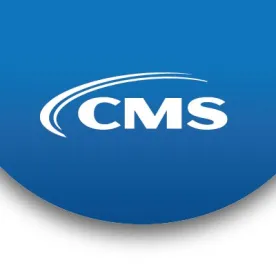On Sept. 1, 2020, the Centers for Medicare and Medicaid Services (CMS) issued a proposed rule that would establish an expedited Medicare coverage pathway for breakthrough medical devices. If the final rule becomes effective, the Medicare Coverage of Innovative Technology (MCIT) pathway would allow national Medicare coverage to begin on the date of market authorization by the Food and Drug Administration (FDA) and continue for up to four years. CMS also proposed standards to be used in making “reasonable and necessary” determinations for items and services furnished under Medicare Part A and Part B programs. The proposed rule is intended to implement the requirements of Executive Order (E.O.) 13890, titled “Executive Order on Protecting and Improving Medicare for Our Nation’s Seniors,” which directed the Secretary of the Department of Health and Human Services (HHS) to “propose regulatory and sub-regulatory changes to the Medicare program to encourage innovation for patients,” including by “streamlining the approval, coverage, and coding process.”
MCIT Pathway
According to CMS, the proposed MCIT pathway aims to provide a faster alternative to existing coverage pathways and would result in predictable national coverage of breakthrough devices. CMS observes that the National Coverage Determination (NCD) and Local Coverage Determination (LCD) processes can take an average of nine to 12 months to finalize, during which time individualized, case-by-case determinations can lead to inconsistencies in coverage. Parallel Review by CMS and FDA is an existing mechanism to help decrease the time between market authorization of certain medical devices by FDA and finalization of an NCD by CMS, but its limitations also prevent it from providing the immediate national coverage that would be possible under the MCIT pathway.
The proposed rule would limit the MCIT pathway to devices designated as “breakthrough devices” by FDA. These are devices that “provide for more effective treatment or diagnosis of life-threatening or irreversibly debilitating human disease conditions” and meet other requirements set out in 21 U.S.C. § 360e-3. According to CMS, the four years of coverage through the MCIT pathway would permit manufacturers of breakthrough devices to conduct clinical studies to support an eventual NCD.
CMS has requested public input with respect to numerous aspects of its proposal. Notably, it has asked for comment on whether the MCIT pathway should be expanded to “include diagnostics, drugs and/or biologics that utilize breakthrough or expedited approaches at the FDA . . . or all diagnostics, drugs and/or biologics.” Further, CMS has requested comment on whether any of the existing coverage pathways should be modified to advance the goals set out in E.O. 13890.
Codification of ‘Reasonable and Necessary’ Criteria
By statute, Medicare will only cover items and services furnished to a beneficiary if they are “reasonable and necessary.” The statute grants HHS the authority to determine the meaning of “reasonable and necessary”; HHS has traditionally made such a determination via guidance published in the Medicare Program Integrity Manual (MPIM). The proposed rule, if finalized, would codify the longstanding MPIM definition with slight modifications.
Under the current standards found in the MPIM, an item or service is considered “reasonable and necessary” for Medicare coverage purposes if it is: (1) safe and effective; (2) not experimental or investigational; and (3) appropriate.
A determination that an item or service is “appropriate” under the third criterion must also consider the appropriateness of the duration and frequency with which it will be furnished. In general, the third criterion will be satisfied if an item or service is: (a) furnished in accordance with accepted standards of medical practice for the diagnosis or treatment of the patient’s condition or to improve the function of a malformed body member; (b) furnished in a setting appropriate to the patient’s medical needs and condition; (c) ordered and furnished by qualified personnel; (d) meets, but does not exceed, the patient’s medical needs; and (e) at least as beneficial as an existing and available medically appropriate alternative.
In addition to codifying these existing standards, CMS also proposes to establish an alternate basis under which an item or service could be deemed “appropriate.” As proposed, if an item or service satisfies the first two “reasonable and necessary” criteria but does not satisfy (a)–(e) above, it may still be “appropriate” if CMS determines that it is covered under one or more plan coverage policies offered in the commercial insurance market to similarly situated patients. CMS is soliciting comments on how best to compare policies offered in the commercial market to Medicare standards as well as which plan, or plans, should be relied upon. CMS did note, however, that it would not consider coverage policies under Medicaid managed care, Medicare Advantage, or any other government-administered health care coverage programs for purposes of this alternate basis for determining appropriateness.
CMS also made clear that FDA-designated “breakthrough devices” would per se satisfy the “reasonable and necessary” criteria, so that the MCIT pathway would have a greater chance of achieving its goal of making innovative treatment options quickly available to Medicare beneficiaries. This interpretation would mark a shift from previous CMS pronouncements that FDA determinations are not controlling for purposes of determining Medicare coverage, a stance which CMS acknowledged has had the effect of delaying beneficiaries’ access to innovative technologies that could improve their health outcomes.
In addition to the areas specifically highlighted above, CMS has solicited input regarding a number of more granular details of its proposal, and CMS appears receptive to a wide range of suggestions and supportive data that would further the broad objectives set forth in E.O. 13890.
To receive full consideration, comments on the proposed rule must be submitted to CMS on or before Nov. 2, 2020.





 />i
/>i
